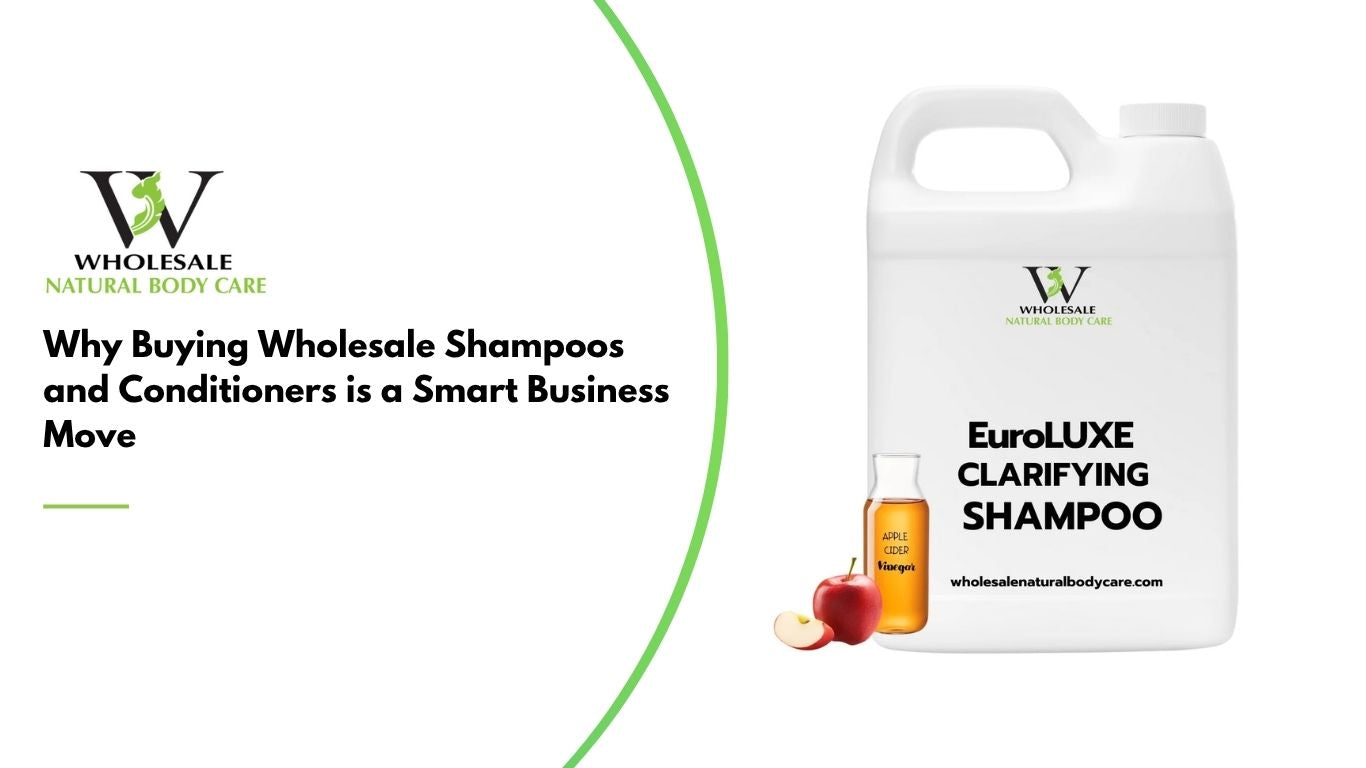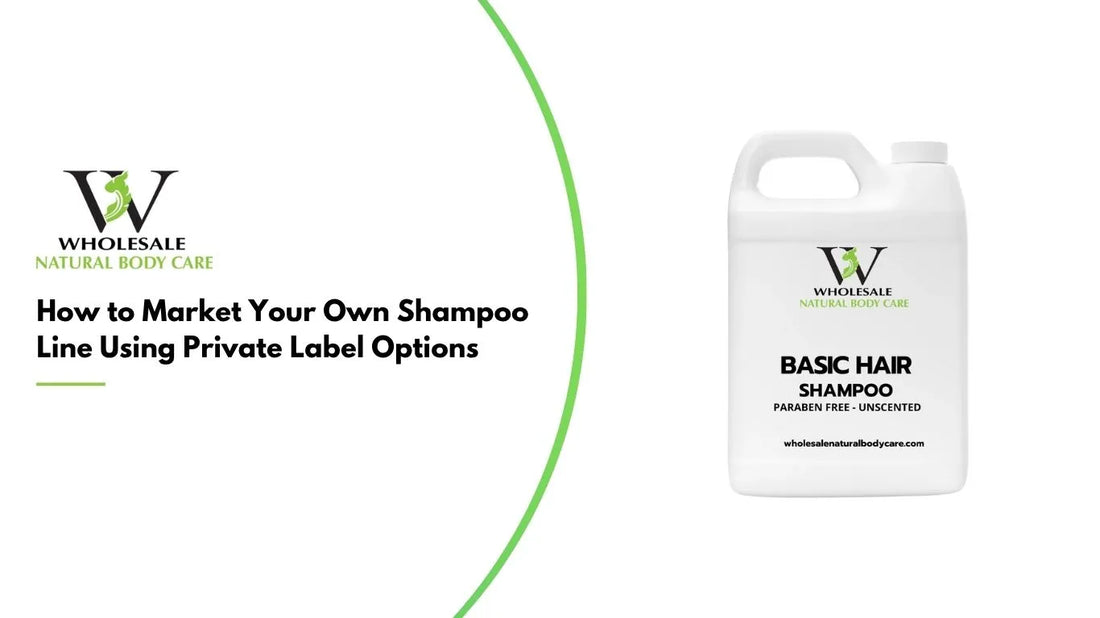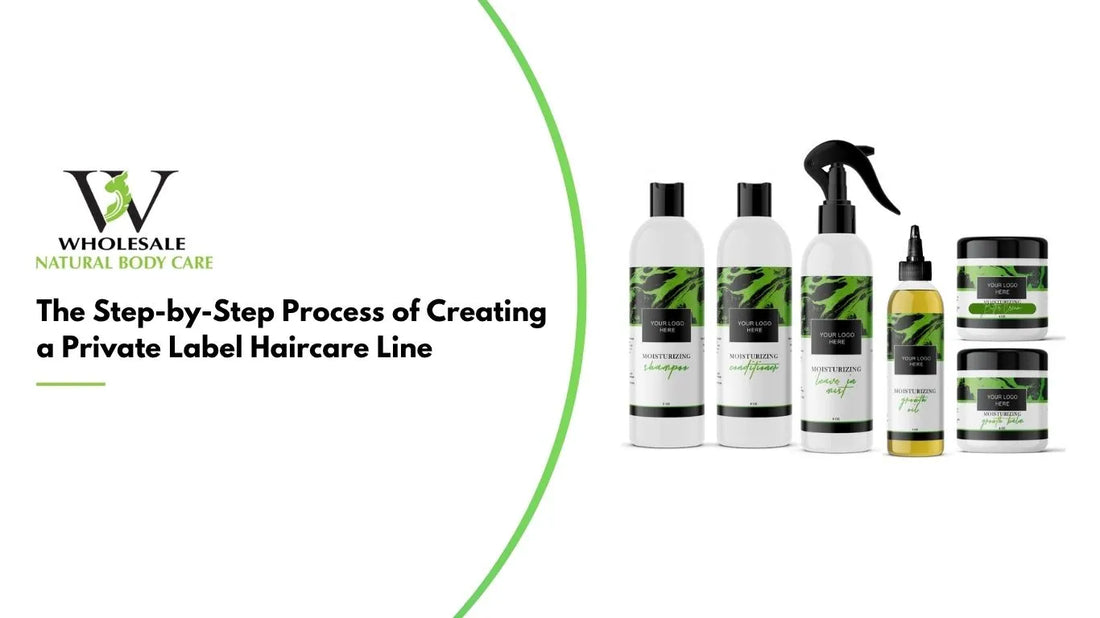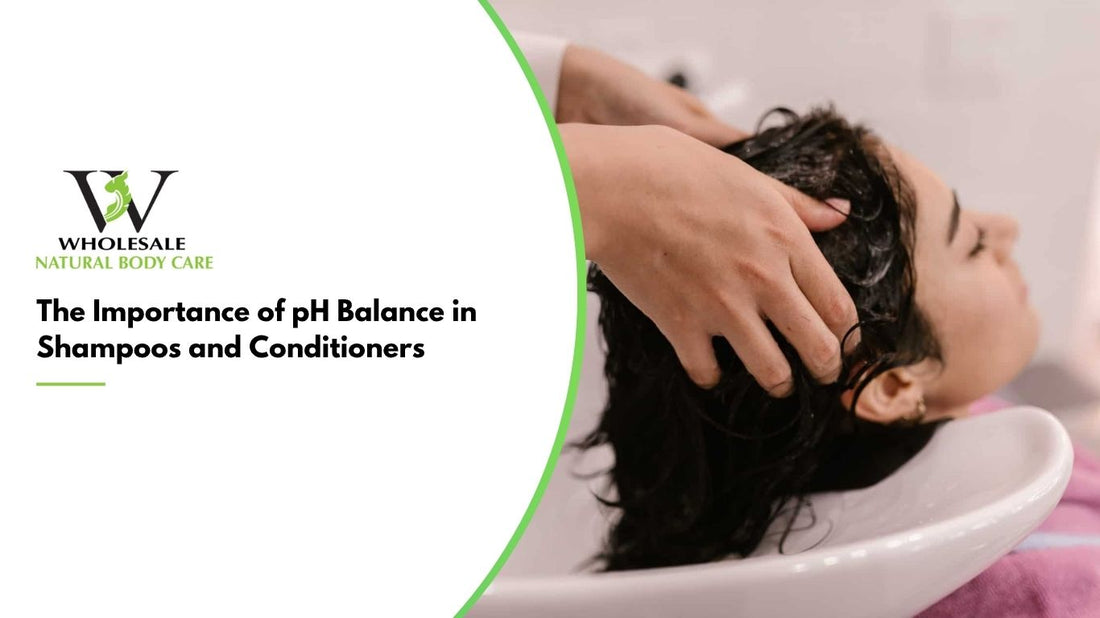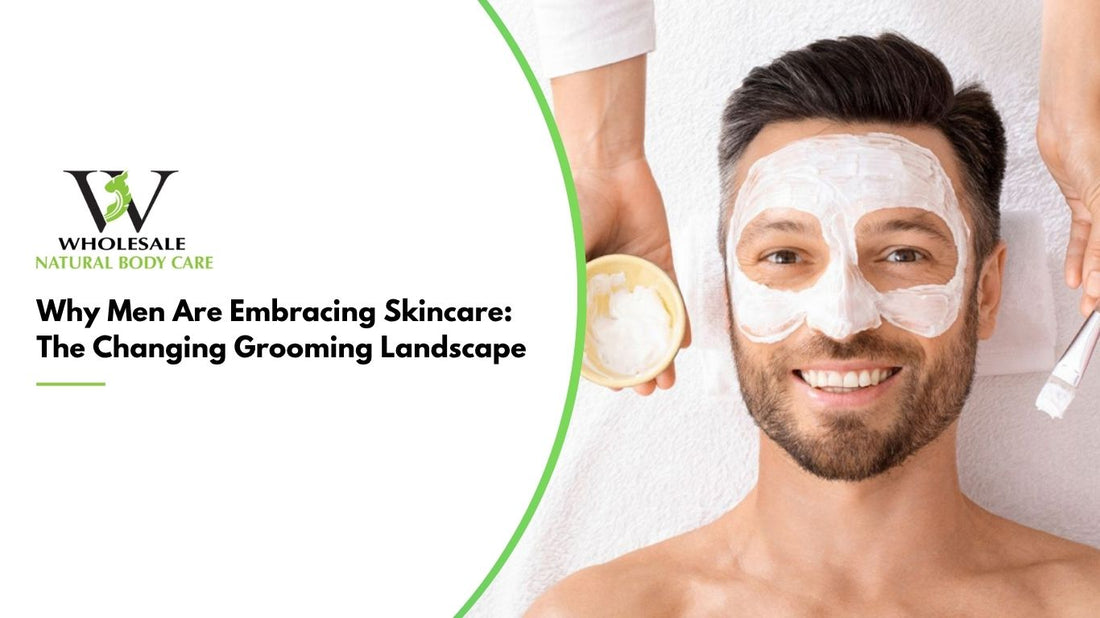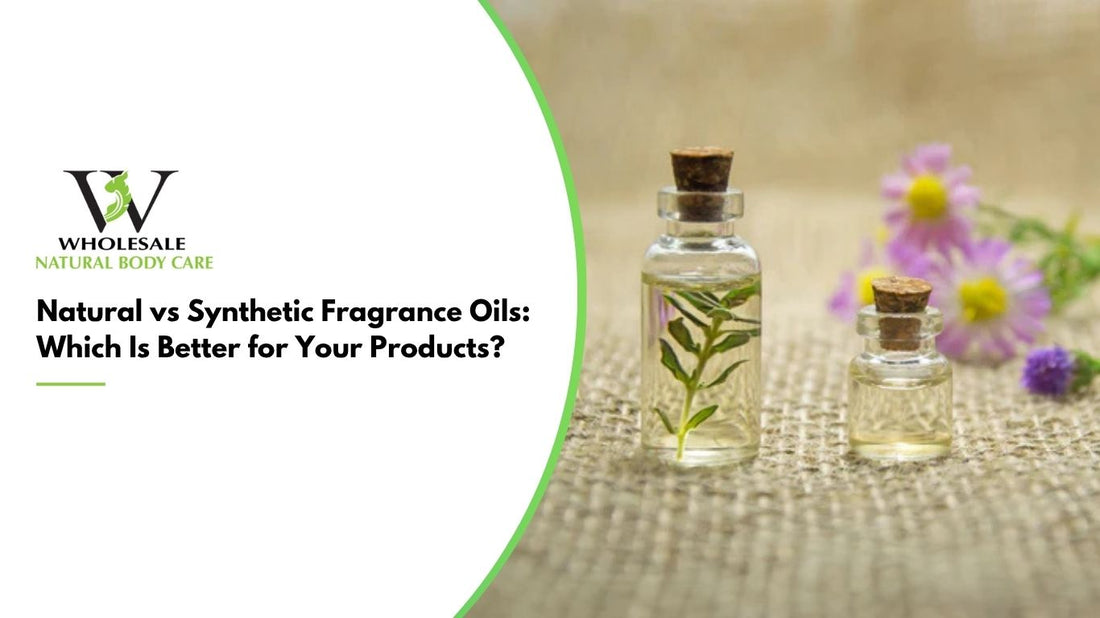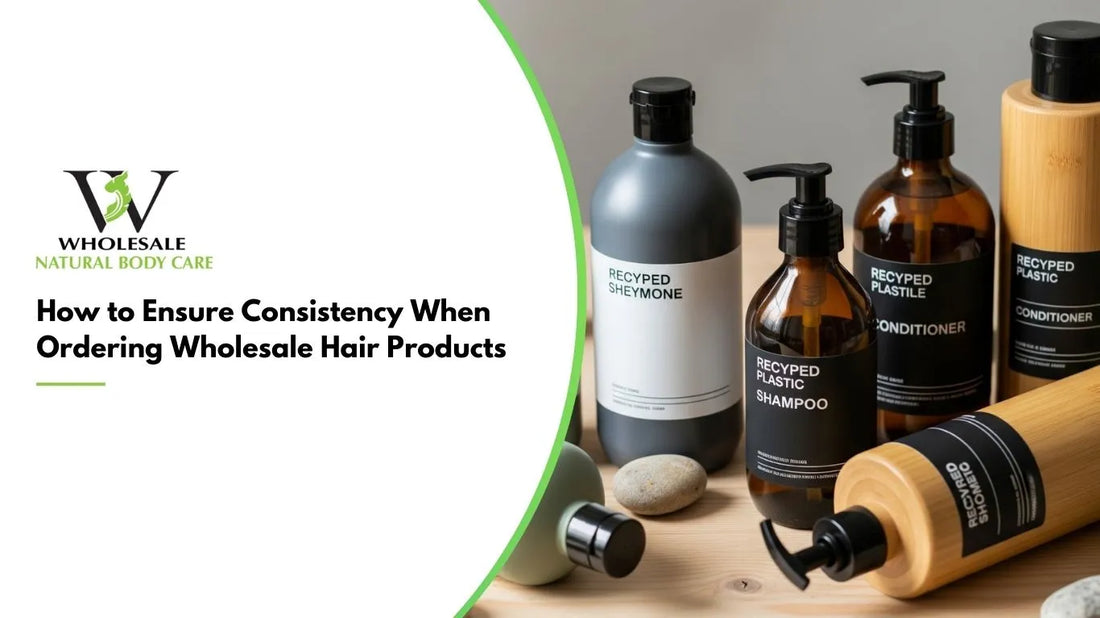News
Cost Factors to Consider When Partnering with a Haircare Manufacturer
Starting a haircare business means understanding costs. When you partner with a private label haircare products manufacturer, you need to know what you're paying for. This guide covers the main expenses you'll encounter. Minimum Order Quantities Every manufacturer has a minimum order amount. Some require 100 units. Others need 1,000 or more. This number affects how much money you need upfront. Smaller orders let you test products without spending too much. Larger orders bring the price per unit down. You have to decide what works for your budget and storage space. Think about how fast you can actually sell the products. The Cost of Ingredients Ingredients make up a big part of your product cost. Natural ingredients cost more than synthetic ones. A private label haircare products manufacturer using quality oils and extracts will charge more than one using cheaper alternatives. The difference shows in the final product. Better ingredients usually mean better results. At Wholesale Natural Body Care, we use natural ingredients because they work. Customers notice the difference. They buy again when products actually help their hair. Custom Formulas vs Ready-Made You have two paths here. Use an existing formula or create your own. Existing formulas are cheaper and faster. Custom formulas cost more because someone has to develop and test them. Custom formulas let you stand out. You can pick specific ingredients. You can create unique scents. You can target specific hair problems. A private label haircare products manufacturer will explain what's possible within your budget. Packaging Decisions Your packaging choices add up quickly. Bottles, pumps, caps, labels—each piece costs money. Plastic is cheaper than glass. Standard shapes cost less than custom designs. Labels vary in price too. Basic labels work fine for many brands. Fancy finishes look nice but cost more. Some manufacturers handle labeling for you. Others don't. Ask what's included. Working with a private label haircare products manufacturer that does packaging saves you from managing multiple vendors. Required Testing You can't skip testing. Your products need to pass safety checks. Stability tests show if the formula stays good over time. Microbial tests check for bacteria. These aren't optional costs. Certifications cost extra. Organic certification has fees. Cruelty-free verification has fees. Vegan certification has fees. Some stores won't carry your products without certain tests. Budget for this from day one. Storage and Fulfillment Your products need to go somewhere after production. Warehouse space costs money. Some products need temperature control. That costs more. Then there's shipping. You need boxes, labels, and packing materials. You need time or staff to pack orders. Some manufacturers store and ship for you. A private label haircare products manufacturer with fulfillment services handles this part, but you pay for the convenience. Beyond the Price Tag The cheapest manufacturer might not save you money. Late deliveries mean lost sales. Quality problems mean angry customers and returns. Poor communication creates stress and mistakes. A good private label haircare products manufacturer responds quickly. They deliver on schedule. They maintain consistent quality. At Wholesale Natural Body Care, we focus on being reliable partners. We know your reputation depends on what we make for you. Building Your Budget Write down every cost you can think of. Ingredients, bottles, labels, testing, storage, shipping. Don't forget setup fees. Don't forget artwork fees. Don't forget rush charges if you need products faster. Get quotes from several manufacturers. Compare the total cost, not just the unit price. Ask questions about everything. A detailed quote helps you plan properly. Moving Forward Picking a manufacturing partner matters. You're trusting them with your brand. Look at their product quality. Look at their communication. Look at their track record. We at Wholesale Natural Body Care make natural personal care products. We handle haircare, skincare, body care, and grooming lines. We help with formulas, packaging, and labels. We work with new businesses and established ones. Check out Wholesale Natural Body Care when you're ready to start. We'll show you what's possible with your budget. We make quality products and deliver reliable service. That's how we help your business succeed.
Learn moreHow to Compare Quality Among Wholesale Haircare Suppliers
There is no doubt that finding the right wholesale haircare supplier can make or break your business. Keep in mind that whether you're stocking a salon or building a private label brand, the quality of your wholesale shampoos and conditioners directly affects your reputation and bottom line. But nowadays there are countless suppliers who claim to offer premium products at competitive prices; how do you separate genuine quality among them? Start With the Ingredient List The foundation of any good haircare product lives in its formulation. When comparing suppliers, ask for complete ingredient lists for their shampoos and conditioners. Quality suppliers provide this information readily because they're proud of what goes into their products. You should look beyond the marketing claims on the front of the bottle. A product labeled as "natural" or "professional grade" means nothing if the ingredient list tells a different story. Check where key ingredients fall in the list. You should also pay attention to what's missing too. Quality formulations skip harsh sulfates like sodium lauryl sulfate, which strip hair of natural oils. They avoid parabens, synthetic dyes, and unnecessary fragrances that can irritate the scalp and damage hair over time. Suppliers who understand modern consumer preferences formulate products that work without these outdated ingredients. Request Samples and Test Them Numbers on paper only tell part of the story. You need to actually use the products. Any reputable supplier will send samples of their wholesale shampoos and conditioners before you commit to a large order. Test these samples yourself and give them to people with different hair types. Check Manufacturing Standards Everybody knows that how products are made matters. You should ask suppliers about their manufacturing facilities and quality control processes. Do they follow Good Manufacturing Practices? Are their facilities inspected and certified? Can they provide documentation? Be cautious of suppliers who can't or won't discuss their manufacturing processes. A great sample batch means nothing if the next order arrives with different color, scent, or performance. Ask suppliers about their quality control processes for maintaining consistency. How do they ensure batch-to-batch uniformity? What happens if a batch doesn't meet standards? Established suppliers track their batches carefully and have protocols for handling any variations. They should be able to explain their testing procedures and show you how they maintain quality across production runs. Consider Packaging Quality Keep in mind that cheap bottles that crack easily, pumps that stop working after a few uses, or labels that peel off with slight moisture suggest a supplier cutting corners. Quality packaging protects the product and makes it easier for your customers to use. It also affects how your brand is perceived. Test the packaging along with the product itself. Does it feel substantial? Do closures seal properly? Will it hold up during shipping and storage? Compare Pricing Realistically Seriously, don’t get tricked by that rock-bottom price tag—it’s rarely the best deal for your business. Instead, think about what really matters: how much product you actually need per use, whether it’ll make your clients’ hair look and feel amazing, and if your supplier offers flexibility like volume discounts or scalable ordering as you grow. A slightly pricier shampoo that works wonders and lasts longer? After researching ingredients, testing samples, and comparing prices, pay attention to how suppliers treat you throughout the process. Do they answer questions thoroughly? Are they responsive and professional? Do they seem interested in helping your business succeed? Quality wholesale shampoos and conditioners suppliers view relationships as partnerships. They want you to succeed because your success means repeat business.
Learn morePrivate Label Men’s Skincare: What Modern Consumers Expect
The men's grooming industry has grown up. What started as a simple bar of soap and aftershave has transformed into a genuine market segment where men actively seek products that work for their specific needs. For businesses looking to enter this space, understanding what today's male consumers actually want when it comes to private label men’s skincare products makes all the difference between a product that sits on shelves and one that flies off them. The Shift in Men's Attitudes Toward Skincare Ten years ago, most men wouldn't be caught dead in the skincare aisle. Today, that same demographic researches ingredients, reads reviews, and builds morning routines. This change didn't happen overnight, but it happened decisively. Men now recognize that taking care of their skin isn't about vanity. It's about health, confidence, and putting their best face forward in professional and personal settings. The stigma has faded and now they have understood that skin needs attention just like any other part of the body. This cultural shift creates real opportunities for private label brands. Men who are new to skincare don't have decades of brand loyalty built up. They're open to trying products that speak to them directly and deliver actual results. What Men Look for in Skincare Products Walk into any store and you'll see dozens of private label men's skincare options. So what makes a man reach for one product over another? Simplicity tops the list. Men generally want straightforward routines that don't require a chemistry degree to understand. A cleanser, moisturizer, and maybe a targeted treatment for specific concerns. That's usually the sweet spot. Products that combine multiple benefits in one formula get serious attention because they save time without sacrificing results. People generally don't understand but packaging matters the most. Men gravitate toward clean, masculine design that doesn't feel clinical or overly decorated. Think sturdy bottles in neutral colors with clear labeling. Nothing that looks like it belongs in a spa treatment room unless that's specifically your market. Scent plays a big role too. Most men prefer subtle, fresh fragrances or completely unscented options. Heavy cologne-like scents in skincare products typically turn them away. Natural scents that don't announce themselves work better than artificial fragrances that linger. Building Trust Through Authenticity Guys see right through fluff. They want straight talk from brands—no fancy words that mean nothing. Honest brands admit when something's not for you. They're there to help, not just push products. And fellas? They're tired of the same old stereotypes. Not every guy wants to smell like a forest or look like a yacht model. Real brands get that. Looking Ahead The private label men's skincare market continues to grow as more men recognize the benefits of proper skin care and younger generations grow up without the old taboos. For private label brands, this represents an ongoing opportunity rather than a temporary trend. The men's skincare customer of today is informed, discerning, and ready to invest in products that make sense for his life. Private label brands that meet these expectations with well-formulated products and honest communication can build lasting success in this growing market.
Learn moreHow to Market Your Own Shampoo Line Using Private Label Options
So your shampoo line is real. The bottles are filled, the labels are perfect, and that signature scent is locked in. You’ve done the hard work of creation with your private label partner. Now comes the next big adventure: getting people to actually discover, fall in love with, and buy your wholesale shampoos and conditioners. Marketing can feel like shouting into the void, but with a smart, focused approach, you can turn your beautiful bottles into bestsellers. Let’s talk strategy. Know Your Tribe (And Where They Hang Out) Before you spend a dime on ads, get crystal clear on who you’re talking to. Remember that niche you defined way back when? Now’s the time to live in it. Are you targeting busy moms seeking gentle, effective cleansers? The curly-haired enthusiast looking for moisture miracles? The eco-warrior demanding plastic-free everything? Once you know your tribe, figure out their digital watering holes. Are they scrolling Instagram for hair inspiration? Reading detailed blogs on ingredient safety? Frequenting specific Facebook groups? Pinning haircare routines on Pinterest? Go where they are. Don’t try to be everywhere at once. Be relevant where it counts. Build Your Brand Story—Make It Irresistible People don’t just buy shampoo; they buy into a story, a solution, a feeling. Your marketing needs to scream why your brand exists. What problem do you solve? What makes your wholesale shampoos and conditioners different? Is it the rare botanicals? The salon-quality results at an at-home price? The commitment to clean ingredients? The luxurious experience? Weave this narrative into everything. Your website copy, your social media bios, and your product descriptions—they should all sing the same song. Use high-quality, authentic photos and videos. Show the product in action. Showcase happy customers (once you have them!). Make your brand feel like a friend, not a faceless corporation. Authenticity builds trust faster than any slick ad campaign. Master Your Digital Playground This is where the magic happens for most modern brands. Your website is your flagship store—make it beautiful, easy to navigate, and mobile-friendly. Ensure your product pages are packed with benefits, ingredients, and clear calls to action. Then, dive into social media strategically. Choose 1-2 platforms where your tribe lives and dominate them. Post consistently, but focus on value, not just sales pitches. Share hair tips, ingredient spotlights, behind-the-scenes glimpses of your brand journey, and user-generated content (repost those customer selfies!), and engage genuinely with comments and messages. Email marketing is gold too. Build a list from day one (offer a discount or free hair guide!) and nurture those subscribers with exclusive content, early access, and special offers. Embrace the Power of Wholesale & Partnerships Getting your products onto the shelves of salons, boutiques, spas, or even local natural grocery stores can be a massive accelerator. Approach retailers who align with your brand values and target audience. Create a compelling wholesale catalog or line sheet. Offer competitive pricing and clear terms. Provide marketing support—maybe point-of-sale displays, sample sizes for them to give clients, or co-branded social media shoutouts. Think about partnerships too. Could you collaborate with a complementary brand (like a natural makeup line or a hair stylist) for a bundle or giveaway? Could you sponsor a local event? Getting your products in front of new audiences through trusted partners is incredibly powerful. Leverage Reviews and Word-of-Mouth Magic In the beauty world, social proof is everything. Encourage happy customers to leave reviews on your website, Google, or social media. Make it easy for them! Feature glowing testimonials prominently. Also, you should consider sending samples to micro-influencers or bloggers in your niche whose audience matches yours. Don’t Forget the Real World While digital is king, offline tactics still have punch, especially for local or niche brands. Participate in relevant craft fairs, pop-up shops, or beauty expos. It lets people experience your products—smell them, feel the texture. Offer samples generously. Network! Talk to salon owners, stylists, and boutique managers face-to-face. Send beautifully packaged press kits to local media or beauty bloggers. Sometimes, a tangible connection makes all the difference. Marketing your private label wholesale shampoos and conditioners line is a marathon, not a sprint. It requires consistency, creativity, and a genuine connection with your audience. Be patient, be persistent, and watch your shelf dream become a shopping cart reality.
Learn moreThe Step-by-Step Process of Creating a Private Label Haircare Line
So, you’ve got this idea. It’s been simmering in the back of your mind—a haircare line that gets it. Products that solve real problems, smell incredible, and maybe even look stunning on a bathroom shelf. You imagine your brand name out there, which helps people feel amazing. Turning that dream into actual bottles sitting on store shelves (or in online carts) feels like a giant leap, doesn’t it? But here’s the secret: it’s entirely doable, step by step. Let’s walk through the journey of creating your very own private label haircare line with the help of a private label haircare products manufacturer. Step 1: Nailing Down Your Niche & Vision Before you even think about bottles, you need a crystal-clear picture. Who are you talking to? Is it the curly-haired community craving moisture? The fine-haired folks desperate for volume? The eco-conscious consumer demanding sustainability? Get specific. What’s your brand’s soul? Luxe and indulgent? Clean and minimalist? Bold and playful? This foundation dictates everything—the ingredients, the scents, the packaging, and the price point. Don’t skip this soul-searching. Knowing your why and your who makes every subsequent decision infinitely easier. Step 2: Finding Your Perfect Partner—The Manufacturer This is where the magic starts taking physical form. You need a Private Label Haircare Products Manufacturer. Think of them as the expert artisans who will bring your formulations to life. Finding the right one is crucial. Do your homework. Look for manufacturers who specialize in haircare, obviously. Check their reputation. Do they have experience with the type of products you envision (sulfate-free shampoos, protein treatments, and styling creams)? Ask about their minimum order quantities (MOQs)—these can vary wildly and impact your initial budget. Most importantly, do they get your vision? A good manufacturer isn’t just a factory; they’re a collaborator. They should be willing to discuss formulations, offer guidance, and provide samples. Communication is key here. You’re building a relationship. Step 3: Crafting Your Formulas—The Heart of the Matter Now for the fun (and sometimes tricky) part: the actual products. Working with your chosen manufacturer, you’ll dive into formulations. They’ll have a library of existing bases you can customize—faster and often more cost-effective. Or, if you have something truly unique in mind, they might help develop a custom formula from scratch. Be prepared for rounds of sampling. Test, test, test! How does it lather? How does it feel on the hair? How does the hair look and feel after drying? Does the scent linger just right? Be brutally honest with your feedback. This stage requires patience. Getting that perfect texture, performance, and fragrance balance takes time. Don’t rush it; your customers will know the difference. Step 4: Building Your Brand Identity—The Look & Feel While the formulas are being perfected, it’s time to design the face of your brand. This goes way beyond just slapping a logo on a bottle. Think about the entire experience. Your brand name, logo, color palette, and typography—it all needs to scream you and resonate with your target audience. How will the packaging look and feel? Sleek frosted glass? Recyclable plastic with a matte finish? Pumps or caps? The design needs to be eye-catching on a crowded shelf but also functional and true to your brand’s values (like using sustainable materials). Work with a designer who understands your vision. This visual identity is what will first draw people in. Step 5: Navigating Production & Logistics Formulas approved? Designs locked in? Time to make it real! This involves placing your official production order with the manufacturer. They’ll source raw materials, batch the products according to your specs, fill the containers, apply labels (or print directly), and package everything. This is also when you need to think logistics. Where will your stock live? Do you need a warehouse? Or will you fulfill orders directly from your home (for smaller launches)? How will you get products to customers or retailers? Factor in shipping costs, timelines, and inventory management. It’s less glamorous than the creative stages but absolutely vital for a smooth operation. Step 6: Launching Your Baby into the World Everything is ready. The boxes are packed. Your website is live (if you’re going direct-to-consumer). Maybe you’ve lined up some initial stockists. Now, it’s launch day! This is where your marketing plan kicks into high gear. How will you tell people you exist? Social media campaigns? Influencer collaborations? PR outreach? A launch event? Building buzz beforehand is smart. Offer pre-orders. Find that great private label haircare products manufacturer, pour your heart into the details, build a brand you believe in, and get ready to share your haircare passion with the world.
Learn moreThe Importance of pH Balance in Shampoos and Conditioners
Hair care sounds simple. You wash it. You condition it. You move on with your day. But there is something happening beneath the surface that most people never think about. It is called pH balance, and it has a direct effect on whether your hair looks healthy or damaged. When you are looking at wholesale shampoos and conditioners for a salon, a store, or even for personal use, pH balance should matter to you. It makes a real difference in how hair looks and feels over time. This article explains why. What Is pH and Why Does It Matter for Hair The pH scale measures how acidic or alkaline something is. The scale goes from 0 to 14. A pH of 7 is neutral. Below 7 is acidic. Above 7 is alkaline. Your hair naturally has a pH between 4.5 and 5.5. This means your hair is slightly acidic. This acidic state is important. It helps keep the protective layer of your hair—called the cuticle—flat and smooth. When the cuticle is flat, moisture stays in. Damage stays out. When you use products with the wrong pH, this changes. The cuticle layer lifts up. Moisture escapes. Hair becomes dry, frizzy, and weak. That is why pH matters so much in wholesale shampoos and conditioners. Why Most Commercial Shampoos Don't Work Many popular shampoos have a pH between 8 and 10. This is very alkaline. While these shampoos might feel like they clean well, they are actually working against your hair. They strip away natural oils. They lift the cuticle layer. Over time, your hair gets damaged. People often blame their hair type for problems. They think their hair is just naturally dry or frizzy. But the truth is often simpler. They are using products with a pH that is too high. When you switch to wholesale shampoos and conditioners with better pH balance, you see real changes. Products That Work With Your Hair Shampoos and conditioners with a pH close to your hair's natural range—between 4.5 and 6.5—work differently. These products keep your cuticle layer flat. Your hair stays smooth and shiny. It holds moisture better. It looks healthier. When you use pH-balanced products, you notice things change. Your hair is easier to manage. You have less frizz. You have less breakage. These are not small differences. They add up over weeks and months. How to Choose Good Wholesale Shampoos and Conditioners When you buy wholesale shampoos and conditioners, look for products that tell you their pH level. Companies that share this information are being honest about their product. They are thinking about what is actually good for hair, not just what sounds good in an advertisement. Look for products that use natural ingredients. Avoid products that list harsh chemicals as the main ingredients. Natural oils and plant extracts are better choices. They work with your hair instead of against it. Why Professionals Trust pH Balance People who work in salons know about pH balance. They see it every day. When a client uses products with the right pH, their hair looks better and lasts longer. When a client uses the wrong products, problems develop. This is not opinion. It is what they see in their work. That is why we at Wholesale Natural Body Care focus on creating products with the right balance. We understand that wholesale shampoos and conditioners need to actually work. We create products that support your hair instead of damaging it. We believe that good hair care should be available to everyone. Making the Change If you switch to pH-balanced shampoos and conditioners, your hair might need time to adjust. For the first week or two, your scalp might produce extra oil. This is normal. Your scalp is finding its balance again after using products that disrupted it. After this adjustment time, most people see real improvement. Hair feels softer. It looks shinier. It is stronger and healthier. The Simple Truth pH balance is not complicated. It is science. Your hair works best at a certain pH. When you use products at that pH, your hair responds. It gets healthier. It looks better. If you are looking for wholesale shampoos and conditioners that actually work, consider what Wholesale Natural Body Care offers. We provide products made with quality ingredients and attention to what your hair actually needs. We offer customizable options and private label solutions to help your brand succeed. Start with us and see the difference the right pH balance can make.
Learn moreWhy Men Are Embracing Skincare: The Changing Grooming Landscape
More men are using skincare now. This is changing the grooming market. Men care about their skin health. They want to look good. This is a big shift. Years ago, skincare was only for women. Now men buy skincare products too. Companies are creating private label men's skincare products because the demand is real. Old Ideas Are Changing For a long time, skincare was seen as something only women did. Men were told that caring for their skin was not masculine. That idea is gone now. Men understand that skincare is about health. Taking care of your skin is normal. It does not matter if you are a man or a woman. Younger men started this change. They use social media. They see other men with good skin. They learn that skincare routines work. Now men of all ages are interested. They want healthy skin and they are not embarrassed to say it. What Men Actually Need Men want easy routines. They do not want ten steps. They want one cleanser. One moisturizer. Maybe one treatment. That is enough. They want products that work quickly and are simple to use. Men care about ingredients too. They want natural products. They read the labels. They ask questions. This is why private label men's skincare with good ingredients matters. Men want to know what they are using. They want products that are safe and effective. Men's Grooming Is Growing Men's grooming now includes more than skincare. There are beard products. Hair care. Body washes. Shaving products. Brands create full grooming lines for men. These lines have products that work together. Men's products look different from women's products. The packaging is different. The scents are different. The message is different. Men want products made for men. They want solutions for their skin and grooming needs. Why Businesses Are Starting Men's Skincare Lines The market is growing. There is room for new brands. Businesses can create their own men's skincare lines without building everything from scratch. This is faster. This is more affordable. This is why private label men's skincare is becoming popular. Entrepreneurs can start small. They can test what men want. They can learn what works. Then they can grow. Many successful brands started this way. Men Want Brands They Can Trust Men look for quality. They want good products made well. They want ingredients that are real and natural. They read reviews. They ask friends. One bad product can hurt a brand. Men want honesty. They want to know what is in the product. They want to understand how it works. Brands that are clear about ingredients build trust. This matters to men. They stay with brands they trust. Starting Your Own Men's Skincare Brand You can start a men's skincare brand. You need good products. You need good packaging. You need marketing that speaks to men. You need a supplier. Wholesale Natural Body Care offers male grooming products ready for your brand label. We have packaging and labeling services. We provide what you need to create your own private label men's skincare line. Our products are made with quality ingredients and are ready for your business to sell. What Comes Next for Men's Skincare Men's skincare will keep growing. More men will start using products. The market will get bigger. Brands that focus on quality will do well. Brands that understand men will succeed. If you want to build a men's grooming brand, the time is right. The customers are there. The interest is real. Wholesale Natural Body Care offers male grooming and private label men's skincare products for your brand. We provide what you need to get started. Browse Wholesale Natural Body Care today and see our men's skincare products and grooming collections ready for your label.
Learn moreNatural vs Synthetic Fragrance Oils: Which Is Better for Your Products?
When you make personal care products, fragrance matters. You need to decide between natural fragrance oils and synthetic ones. Both have advantages. Both have drawbacks. Understanding the difference helps you pick what works for your brand. Many businesses use private label high quality fragrance oils to create their product lines. The choice you make affects your customers and your business. Natural Fragrance Oils Natural fragrance oils come from plants and flowers. They are extracted through distillation, pressing, or other methods. What you get is pure plant material. No chemicals are added in the process. People like natural fragrance oils because they smell real. A rose oil smells different than a rose fragrance made in a lab. Customers often prefer natural because they think it is better for them. They connect natural fragrance oils with health and wellness. The scent profile changes over time. This can be good or bad depending on what you want. Some customers like this. Others do not. Synthetic Fragrance Oils Synthetic fragrance oils are made in labs. Scientists blend chemical compounds to create a specific scent. They can make smells that do not exist in nature. Think of ocean breeze or fresh linen. Plants cannot create these scents. Synthetic fragrance oils stay the same. They are stable. They do not change much over time. They work well in different conditions. They last longer in products. This is useful for business. If you want consistency, private label high quality fragrance oils made from synthetic compounds deliver reliable results every time. Price Differences Natural fragrance oils cost more. Plants must be grown, harvested, and processed. They must be shipped. This takes time and money. Synthetic fragrance oils are made in factories. They cost less. If you have a small budget, synthetic fragrance oils make sense. But customers often pay more for products with natural ingredients. So sometimes the higher price of natural oils leads to higher product prices and better sales. How Long They Last This is important. Natural fragrance oils fade faster. In body butters and lotions, natural oils can break down quickly. Your product might smell strong at first but weaker after months on the shelf. Synthetic fragrance oils hold their scent. The fragrance stays strong from the first use to the last. Your customers need to know what to expect. Reliability matters for your brand. When you choose private label high quality fragrance oils, consistency is key to building customer trust. What Customers Expect Customers care about what is in their products. Some want natural ingredients. Others just want something that works. Honesty matters. If you say your product is natural, use natural fragrance oils. If you focus on performance, synthetic fragrance oils work better. Many brands use both. They mix natural fragrance oils with synthetic ones. This gives them a strong scent that lasts, and they can still say they use some natural ingredients. Different Products Need Different Choices Body butters might need synthetic fragrance oils because natural oils can separate. Soaps and washes can work with either type. Think about what you are making. Also think about shelf life. If your product sits in storage for months, you need fragrance that lasts. Private label high quality fragrance oils with strong staying power are important for long shelf lives. Natural fragrance oils work better for products that sell quickly. Making Your Decision Ask yourself what matters most to you. Is it natural ingredients? Does scent need to last? What is your budget? What do your customers want? There is no perfect answer. The best choice depends on your business and your customers. Partner With Wholesale Natural Body Care Wholesale Natural Body Care helps brands build their own personal care product lines. We offer products ready for your label. We provide packaging and labeling services. We work with your brand to make quality products. Whether you are using private label high quality fragrance oils or building something new, we have what you need. Wholesale Natural Body Care supplies the products and support you need to grow your brand. Visit us today to see how we can help your business succeed.
Learn moreHow to Ensure Consistency When Ordering Wholesale Hair Products
Getting consistent wholesale hair products can be challenging. One month your wholesale shampoos and conditioners are perfect, the next month they arrive with different colors or textures. Your customers notice these changes, which is why maintaining consistency is so important for your business reputation. Know What You're Actually Buying Most people think they know their products, but do you really? When you find wholesale shampoos and conditioners that work, write down everything about them. Not just the basics—get specific. What's the exact shade? How thick is it when you pour it? Does it have a strong scent or subtle one? Ask your supplier for the technical stuff too. Ingredient percentages, pH levels, viscosity measurements. Yes, it sounds boring, but these numbers don't lie. When your next order arrives and something feels different, you'll actually have proof. No more difficult phone calls where you're trying to explain that something just "feels wrong" while the supplier questions your concerns. Pick Suppliers Who Actually Care Look, not all suppliers are created equal. Some view you as just another invoice to process. They'll grab whatever batch is closest to the shipping door and figure you won't notice if the color is a shade off. Then there are suppliers who treat your business like it matters—they keep detailed notes, follow strict procedures, and genuinely want you to succeed. You can usually tell the difference during your first conversation. Good suppliers ask detailed questions about what you need. They explain their processes and show you how they maintain quality. At Wholesale Natural Body Care, we keep detailed records for every client because we know that small variations can hurt your business. When you order wholesale shampoos and conditioners from us, you get the same formula every single time. Set Up Quick Quality Checks You don't need a lab to spot problems. Create a simple routine for checking new shipments. Compare the color, smell, and texture to your previous orders. Keep samples from your first good batch stored somewhere cool and dry—these become your reference point. Most issues are obvious once you know what to look for. The color might be slightly off, or the product might feel thinner when you rub it between your fingers. Catching these differences early saves you from unhappy customers later. Time Your Orders Smart Here's something most people don't think about: when you order matters. Suppliers often make specific products on certain days or weeks. Products made in the same batch are almost always more consistent than products made months apart. Call up your supplier and ask when they usually make your wholesale shampoos and conditioners. Most have a schedule—maybe they do shampoos on Tuesdays and conditioners on Fridays. If you can time your orders to come from the same production day, you're golden. Same ingredients, same equipment, same everything. It's one of those little insider tricks that actually works. Keep Simple Records Don't overcomplicate this. Grab a notebook or start a simple spreadsheet. Write down batch numbers, delivery dates, and anything that catches your eye. Product looks darker than usual? Write it down. Smells stronger? Note it. Feels thinner? Document it. This might sound like extra work, but it really helps. When you call your supplier about a problem, the conversation goes much better when you can say "Batch #12345 delivered on March 15th has a yellow tint compared to batch #11999 from February" versus "This doesn't look right." Specific details lead to better outcomes. Don't Let Problems Sit The moment you notice something's off, contact your supplier. Waiting doesn't improve the situation, and your supplier can't fix what they don't know about. Most suppliers actually prefer getting early notice about issues rather than finding out later through customer complaints. Pull out those records and reference samples when you call. Show them exactly what's different. A good supplier will thank you for the feedback and use it to tighten up their process. Find Your People At the end of the day, consistency comes down to working with people who get it. At Wholesale Natural Body Care, we know that when you order wholesale shampoos and conditioners from us, you're trusting us with your reputation. We understand that when you put your name on a product, your reputation is on the line. That's why we maintain strict quality controls for every order. Ready to work with a supplier who takes consistency seriously? Contact us today to see how we can help you build a hair care line your customers will trust.
Learn more

